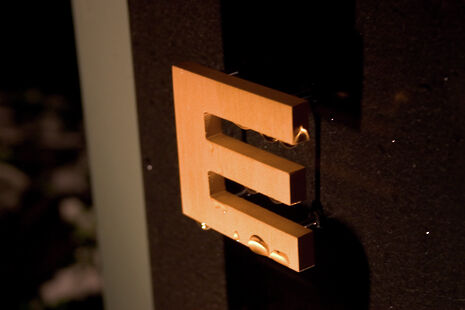Happn + Grindr: Do the apps that elide the ‘e’ bring us closer to love?
Genevieve Gaunt on why lexical elision isn’t such a new phenomenon

Elision is trending, with French dating app happn and hook-up app Grindr joining forerunners such as Tumblr and Flickr in dropping the letter ‘e’ from their names. Haven’t we crawled out of our adolescent bogs of philistinism and moved on from h8ed txt spk by now? I thought phone apps were for adults and not vowel-allergic teenagers. With nouns being morphed into verbs and vice versa at a rate faster than the multiplication of Medusa’s curls, it would be understandable to think that we were hacking the English language to death. However, perhaps the disappearance of the noble ‘e’ in popular apps should not elicit such cries of woe as to the survival of our language.
Elision isn’t simply another result of ‘trending’ or lexical rehashing. In fact, the practice is centuries old. Shakespeare and other popular writers of the time all used apostrophes in their work as an aid to balancing metre. For example ‘e’en’ instead of even and ‘lov’d’ in place of loved. Of course, one has to be careful, as this practice could also have been prompted by overly-enthusiastic eighteenth century editors. However, poets in that time also played with the uses of words, transforming verbs to adjectives, adjectives to nouns, and so on. This is a rhetorical device known as ‘zero morpheme derivation’ or ‘conversion’, and it celebrates the idea that language is malleable and fluid, rather than fixed and rigid.
The English language itself is a sensational patchwork of lexical thievery and imposition. As Charles Laurence Barber unfurls for us in his book, Early Modern English, the following well-known nouns originally derive from verbs: ‘gossip’ in 1590, ‘launder’ in 1610 and (best of all, I think) ‘barbecue’ in 1661. Incidentally, some sources say that the word barbecue comes from the French barbe á queue (‘from beard to tail’); the OED sniffs at this suggestion, but I rather like it. The French app happn, therefore, is just a modern shadow of what the Latinate languages contributed in calques (loan words) to the delightful flux that is English in the seventeenth century.
It seems almost inevitable then, even comforting, that happn and Grindr would apostrophise the ‘e’ in the same way as the Jailer’s Daughter in Shakespeare’s The Two Noble Kinsmen: ‘Then, I lov’d him,/Extremely lov’d him, infinitely lov’d him!’ This declaration of love is repeated thrice. It is in reading, then, that we glean a new layer of meaning – the shot of hot, painful love is too potent to allow to cool on the rack of an ‘e’. This further illuminates the elision occurring in ‘Grindr’ and ‘happn’. The consonant clash of ‘d/r’ in Grindr is pelvic, thrusting. There’s no space for romantic assonance. Similarly the collision of ‘p/n’ in happn pings across the tongue like Cupid’s arrow, which is fitting given that happn works over a 250-mile radius; although it’s not Cupid doing the archery but GPS.
The example from Shakespeare is apt, even darn coincidental. Nevertheless, it visually represents that, through an app or social network, you can bring letters (and, quelle surprise, people) closer together. The flirty ‘e’ merely hides, like a beautiful body concealed beneath one’s clothing. It’s still there and our desire to undress it has remained the same since long before the Jacobins.
Let’s just hope that the app’s promise of love is less elusive than its ‘e’.
 Interviews / ‘People just walk away’: the sense of exclusion felt by foundation year students19 April 2024
Interviews / ‘People just walk away’: the sense of exclusion felt by foundation year students19 April 2024 News / Climate activists smash windows of Cambridge Energy Institute22 April 2024
News / Climate activists smash windows of Cambridge Energy Institute22 April 2024 News / Copycat don caught again19 April 2024
News / Copycat don caught again19 April 2024 News / John’s spent over 17 times more on chapel choir than axed St John’s Voices22 April 2024
News / John’s spent over 17 times more on chapel choir than axed St John’s Voices22 April 2024 News / Fitz students face ‘massive invasion of privacy’ over messy rooms23 April 2024
News / Fitz students face ‘massive invasion of privacy’ over messy rooms23 April 2024





